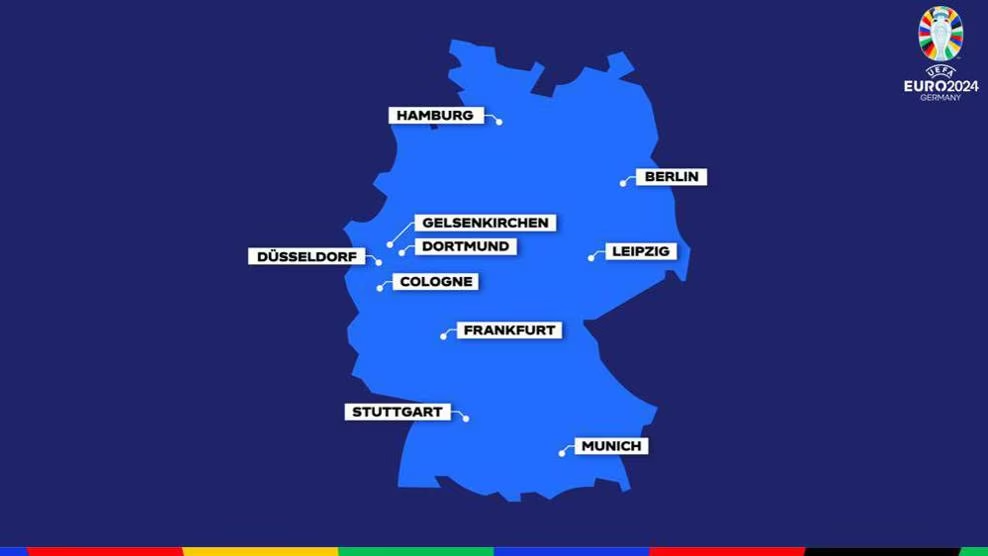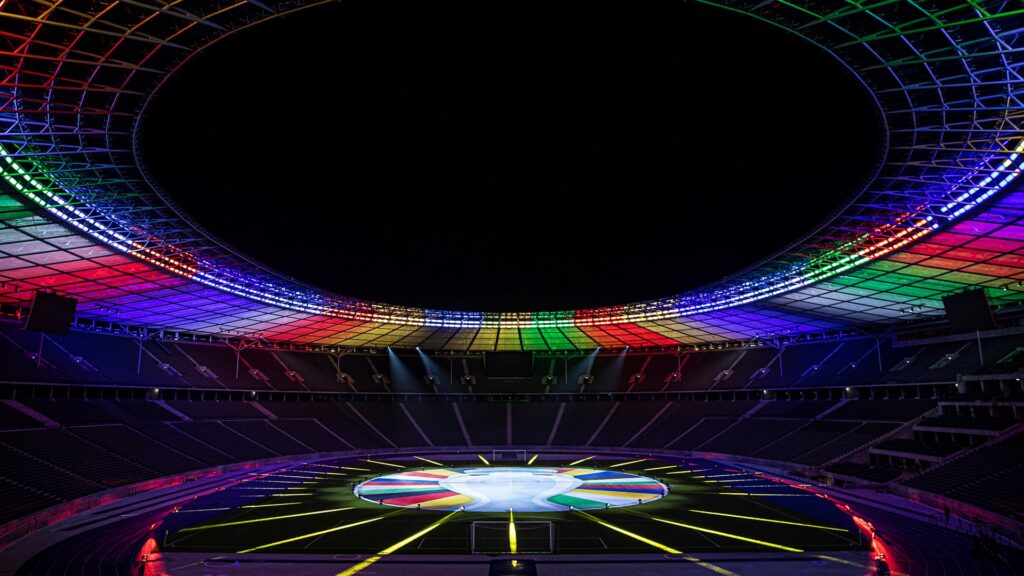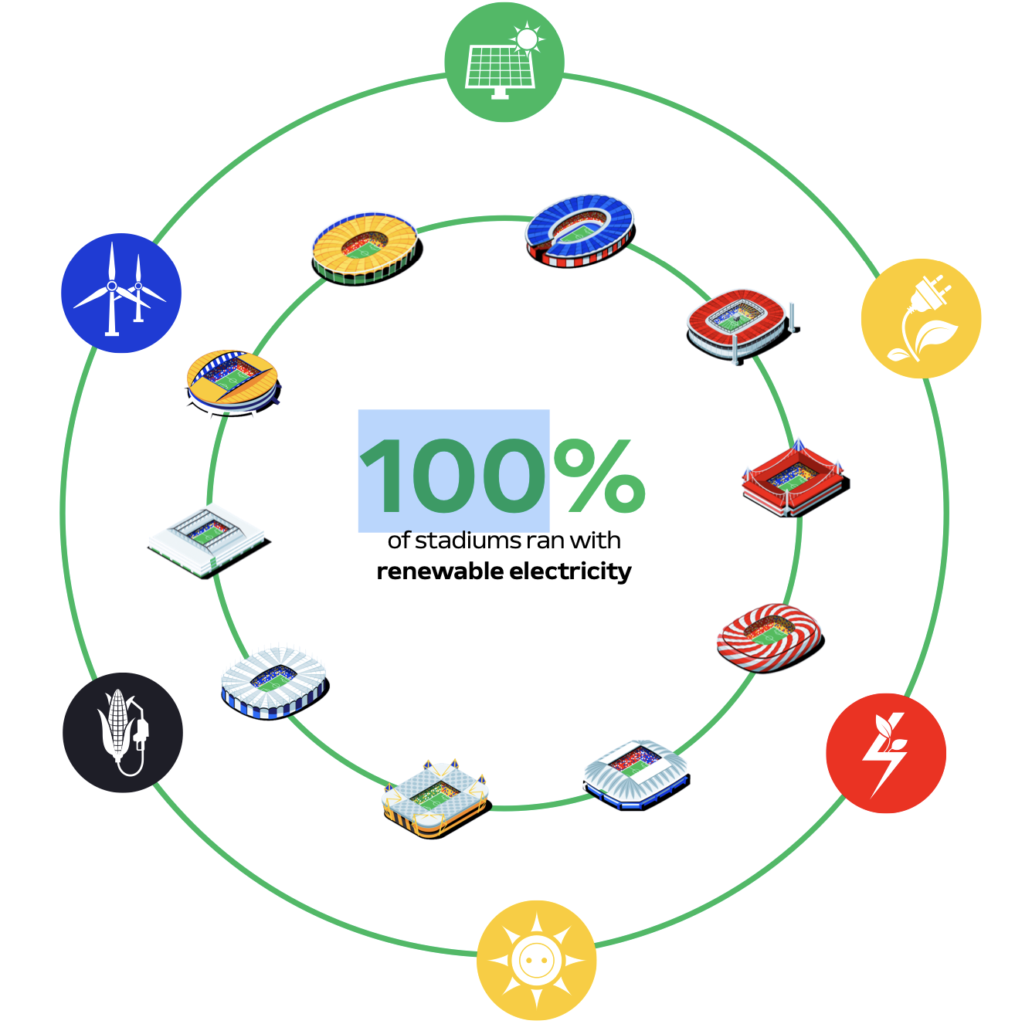‘We will host the greenest European Football Championship in history,’ said German officials ahead of the continent’s most important football event, scheduled from 14 June to 14 July 2024. A laudable intention, especially since football is a sport that consumes a great deal of carbon. Just take a look at the protagonists of a match. There is the stadium, floodlit, heated and cooled, with the turf manicured with huge reserves of water. Additionally, the fans who travel to the venue and support their club. There is the hospitality that allows football clubs to earn more money by raising ticket prices that include lunch or dinner along with a luxury seat to watch the game.
There is merchandising that requires energy resources, as well as police and control bodies in and around the facilities to ensure public order. In short, there are many elements that participate and consume energy, generating an impact on the environment that is anything but light. All these aspects multiply during an international event that lasts a month and attracts hundreds of thousands of spectators, with the inevitable surge in carbon emissions.
No useless promises, the first step is to change the approach
For the European Football Championship to be held in Germany, Uefa (Union of European football associations, the body that organises continental tournaments for national and club teams) presented its environmental strategy at COP 28 last December. With climate change becoming a dominant theme in the social-political debate, football too must play its part in turning around an unsustainable lifestyle for our planet. The first step that breaks with the immobilism of the past was to allocate $32 million for the sustainability of the event, an unprecedented innovation for a sport that is unparalleled in its ability to raise awareness among its followers.
To clear up misunderstandings right away, the representatives of Uefa and the German Football Federation do not speak of a ‘climate-neutral event’. This is good because the experience and history of football has shown that this is barroom talk, impossible to take seriously. As explained by Michele Uva, Uefa Director Social & Environmental Sustainability, the real and attainable goal is ‘to reduce, reduce and again reduce the ecological footprint, looking at 2030 as an intermediate step to pursue a paradigm shift, because it makes no sense to give a deadline to a long-term project’.
More trains and fewer flights
A first form of concrete intervention is economic compensation, with the governing body of European football contributing €25 per tonne of CO2, an estimated €7 million, to a Climate Fund to support initiatives by German amateur clubs on energy, water, smart mobility and waste management. However, money is not enough if you want to set an example, especially in the country that first set environmental standards for football clubs. The last European Championship, postponed to 2021 due to the Covid-19 pandemic, was held in 11 different countries, causing strong criticism among environmentalists for the climate impact caused by fan travel. This time everything takes place in one country and predictions indicate that 80% of the carbon footprint will come from transport, with fans arriving from all over the world. The German Tourist Board estimates around 10 million visitors for the 51 matches scheduled in ten stadiums.





In order to reduce the size of the pollution wave, Uefa is subsidising a 25% discount on Interrail passes to encourage the use of trains instead of flights. Also in this direction is the availability of a €29 ticket for travelling by train between the host cities. The German railways have also planned more frequent high-speed trains with a total of 10,000 more seats than usual. The German football federation (Deutscher Fußball-Bund) has planned the match schedule to reduce national team travel during the first phase of the tournament, while expressly requiring teams to use low-emission vehicles. A focus on carbon emissions will also be given to food, with vegetarian food, sustainable packaging, reusable cups and recyclable materials used inside the stadiums.
European Football Championship
The condition of the facilities that has enabled Germany to secure the organisation of the football event. Unlike Turkey, a contender in the final duel, the Germans have not planned to build any new stadiums, as the ten chosen to host the matches are already energy efficient. Thanks in part to the work carried out for the 2006 World Cup, the country has facilities in perfect condition, with the DFB promising careful energy management, with the use of renewable energy sources, reduced emissions for lighting, and reduced consumption compared to the past in media centres.
Apart from the spectacle that the players will give on the pitch, therefore, the conditions for a successful event are all there. Because the message that Germany wants to leave behind is clear: it is time for all stakeholders in professional football to take responsibility and rethink structures, mobility and internal organisation to reduce the impact on the environment.



